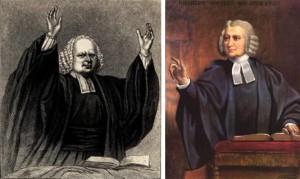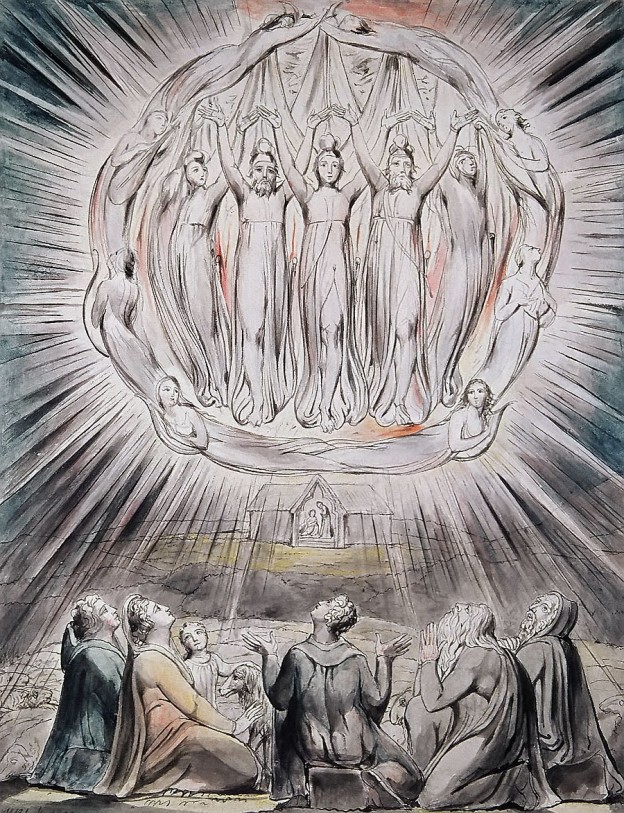On Saturday, I attended a magnificent Christmas Concert at Stanwich Church in Greenwich. Toward the end, the congregation sang “Hark! The Herald Angels Sing,” a carol so familiar I can almost sing the words without looking at the printed verses.
But yesterday, while singing this hymn, I was surprised to discover these words in the fourth stanza:
Come, Desire of Nations, Come!
Fix in us Thy humble home;
Rise, the woman’s conquering Seed,
Bruise in us the serpent’s head.
Adam’s likeness now efface,
Stamp Thine image in its place:
Second Adam from above,
Reinstate us in Thy love.
 Wow, I said to myself. Here is the Gospel in a nutshell. But for many, I’m afraid, these words will draw a blank. What do they mean? When Charles Wesley, brother to Methodism’s founder John Wesley, first wrote these words, in 1739, the hymn’s opening line was “Hark, how the welkin [the arc of the heavens] rings.” We can thank his evangelist colleague George Whitefield for changing the line, over Wesley’s protests, in 1753, to “Hark, the herald angels sing.” However it opened, in those days the words would have been understood for the full gospel message they contain.
Wow, I said to myself. Here is the Gospel in a nutshell. But for many, I’m afraid, these words will draw a blank. What do they mean? When Charles Wesley, brother to Methodism’s founder John Wesley, first wrote these words, in 1739, the hymn’s opening line was “Hark, how the welkin [the arc of the heavens] rings.” We can thank his evangelist colleague George Whitefield for changing the line, over Wesley’s protests, in 1753, to “Hark, the herald angels sing.” However it opened, in those days the words would have been understood for the full gospel message they contain.
Here is how I would paraphrase the poetic words of Wesley and Whitefield:
In the beginning, God created the heavens and the earth. He created mankind in the form of Adam and Eve and He created them in His own image. The deceptions of the Serpent, however, marred Adam’s image. Mankind lost its original relationship with God, but God did not lose His love for us. To bring the children of the first Adam back into relationship with Him would entail great cost. God’s abiding love moved Him to restore what was lost in Paradise. He called upon the second Adam, Jesus, to reverse the work of Satan through the cross and reinstate men and women in His love.
And here is how Paul tells it:
“Therefore, just as sin entered the world through one man, and death through sin, and in this way death came to all people, because all sinned. . . . Nevertheless, death reigned from the time of Adam to the time of Moses, even over those who did not sin by breaking a command, as did Adam, who is a pattern of the one to come.
“But the gift is not like the trespass. For if the many died by the trespass of the one man, how much more did God’s grace and the gift that came by the grace of the one man, Jesus Christ, overflow to the many! Nor can the gift of God be compared with the result of one man’s sin. The judgment followed one sin and brought condemnation, but the gift followed many trespasses and brought justification. For if, by the trespass of the one man, death reigned through the one man, how much more will those who receive God’s abundant provision of grace and of the gift of righteousness reign in life through the one man, Jesus Christ.” (Romans 5: 12-17)
As anyone can see, Charles Wesley, author of more than 6,000 hymns, took complex theology and distilled it into a few lines of poetry. Brilliant.
Watch the Mormon Tabernacle Choir sing “Hark! The Herald Angels Sing”
